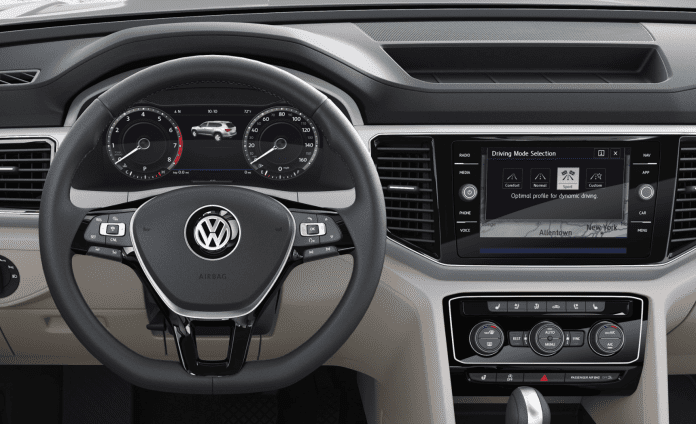The German car maker said it is working with authorities and industry partners to accelerate the spread of the V2V technology
German car manufacturer Volskwagen announced that it expects to start fitting its first models with pWLAN to allow vehicle-to-vehicle (V2V) and vehicle-to-infrastructure (V2I) communications in 2019.
The technology used by Volkswagen is based on the IEEE 802.11p (pWLAN) standard, which the automotive industry has already standardized and tested for direct, non-proprietary inter-vehicle communication as well as between vehicles and transport infrastructure and in international markets.
Using this technology, cars will be able to share information about the current traffic situation, warnings or even sensor data with the local environment within a few milliseconds, Volkswagen said.
“We want to increase road safety with the aid of networked vehicles, and the most efficient way of achieving this is through the rapid roll-out of a common technology”, said Johannes Neft, Head of Vehicle Body Development at Volkswagen. “What matters most is that the technology is used consistently, and by as many manufacturers and partners as possible.”
When it is launched in 2019, the system will be based on warnings and information on local traffic risks that arise at short notice. The new technology is also capable of identifying potential traffic hazards, the company said.
Volkswagen also said that it is cooperating with authorities, ministries of transport and other automobile and transport industry partners, working on projects to accelerate the spread of the technology through to its inclusion in serial production.
Volkswagen also said that once police forces and emergency services are also equipped with pWLAN technology, it will be possible for drivers to receive advance information on the exact position of emergency vehicles.
In addition to this, transport infrastructure operators in Germany, the Netherlands and Austria have announced plans to equip trailers used to block off roadworks with pWLAN technology, in order to reduce the risks of rear-end collisions in the area of roadworks on motorways.
The exchange of information between vehicles (car-to-car) and between vehicles and transport infrastructure (car-to-X) presupposes that vehicles and transport infrastructure are equipped with pWLAN communication technology and use the same message format.
Last week Volvo said that by 2021 it will be selling autonomous cars that don’t require driver intervention. As an automaker that has built its brand around safety, Volvo is well-positioned to lead the migration to autonomous cars. Two years ago, Volvo CEO Håkan Samuelsson said his company will assume all liability for its autonomous cars.

